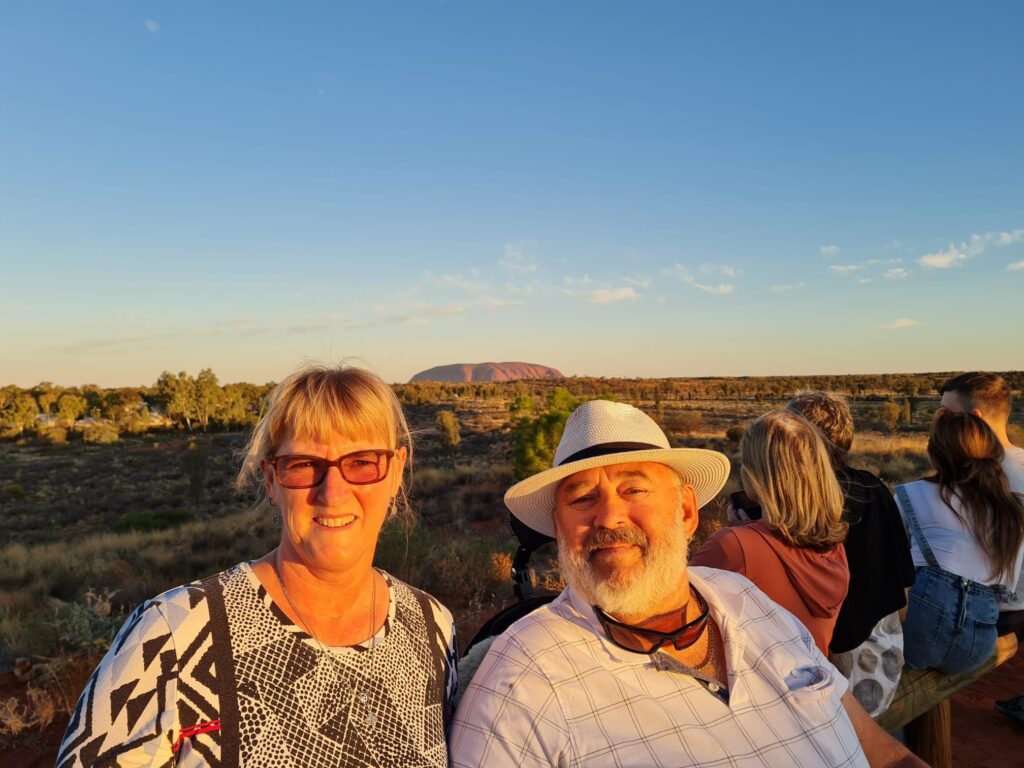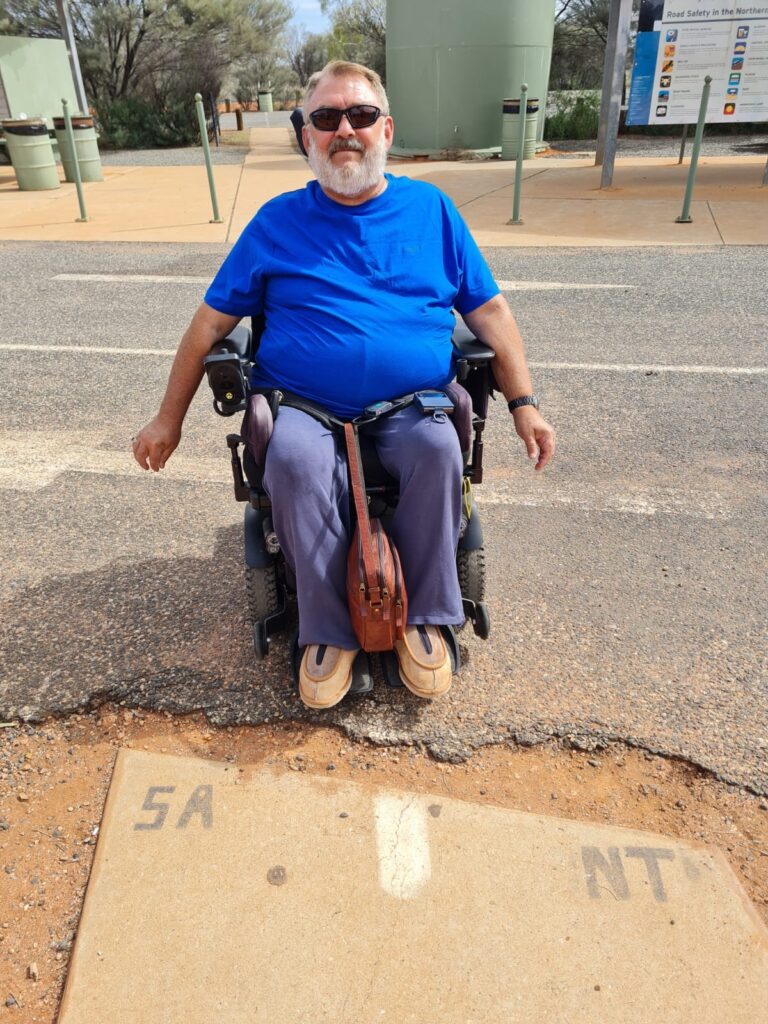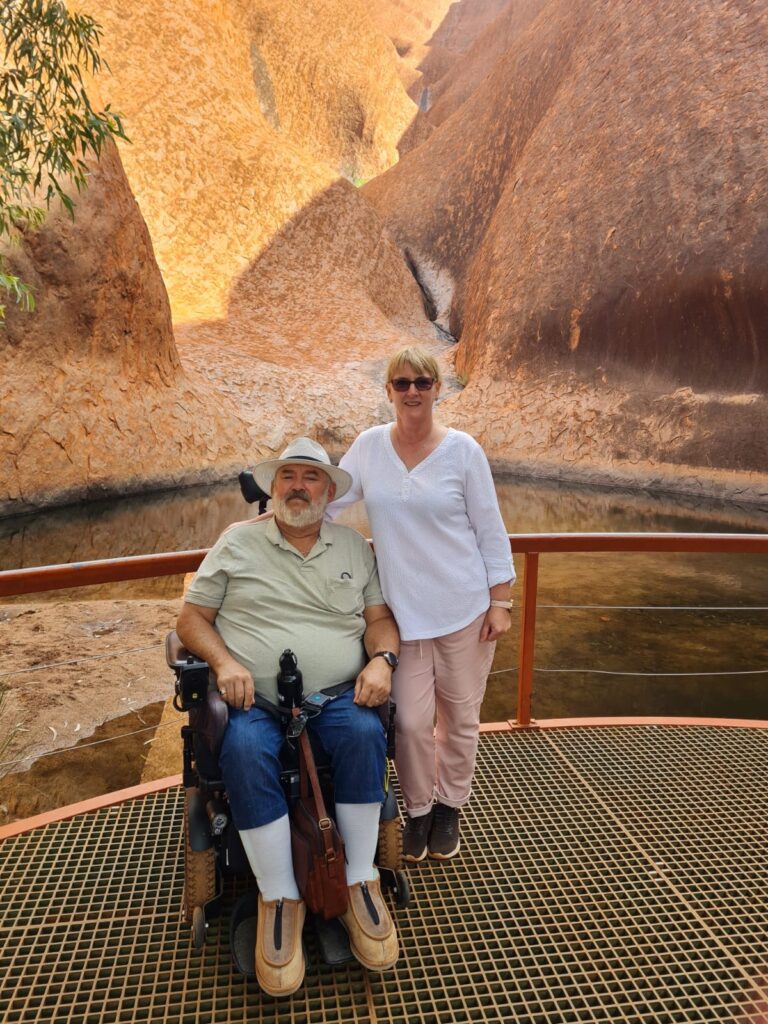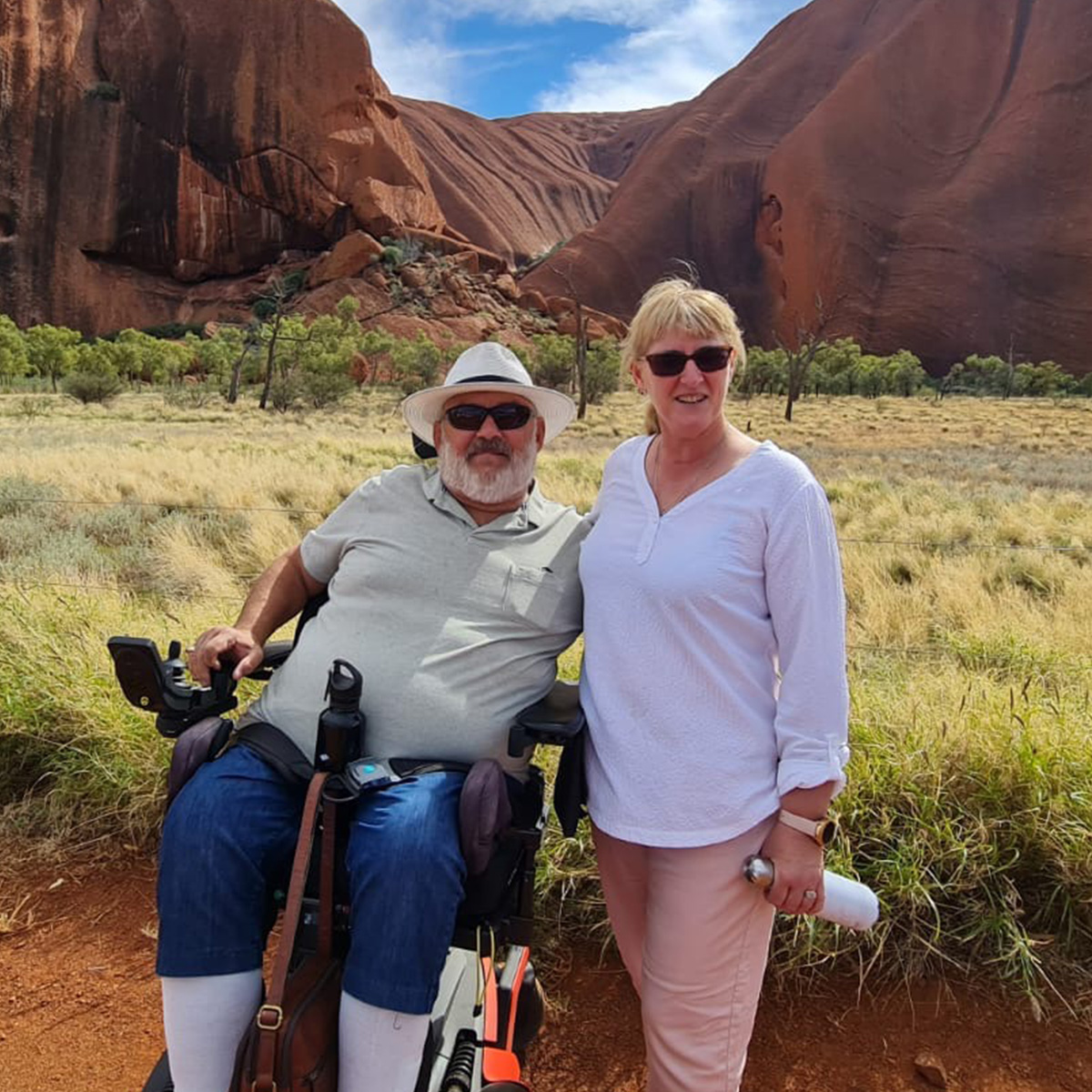After years of empty fridges, no hot water, and piles of laundry, my wife and I ultimately achieved nirvana – we’re finally empty nesters. The kids have left home! However, this creates a new problem; the unsaid rule that parents (read: mothers) must visit their offspring.
With our youngest son living in Alice Springs, he was last on our list to visit. Oh why did he live so far away! Anyhoo, a road trip was planned.
Leaving Canberra, our stop-off points were Mildura, Port Augusta, Coober Pedy and Alice Springs, with the return journey including Yularu, Uluru (aka Ayers Rock) and Kata Tjuta (aka The Olgas). In total, 5,600kms round trip.
Our transport was my trusty Ford Transit van. With a rear mounted BraunAbility hoist, hand-controls and docking stations in both the driver and passenger side (allowing for interchangeability), we had plenty of space for storing my commode, luggage and an esky. After a service on the van and the hoist, a download on our mobile phones of music and podcasts, we were ready to go.

Before leaving I booked the motels we planned to stay. Accessible rooms are considered ‘last to let’ by hoteliers, and as we were travelling during a busy time (May), it was prudent to book ahead of time. Interestingly, most of the motels we stayed at allowed pets (with conditions). However, we left our fur baby at home.
The road trip to Alice Springs was uneventful. As expected, motels varied considerably in accessibility, with none fully wheelchair accessible. Typical issues were the absence of mixer taps, automatic doors, and poor navigation space. Most rooms were normal rooms with [poorly] modified bathrooms. Accessible tourism has a long way to go.
To our surprise, Alice Springs was very accessible, with wide paths and demountable curb ramps. We walked-wheeled everywhere, from the town centre to the casino. We particularly liked the botanical gardens. However, Alice Springs is a spread-out town, so distances are large.

Next stop: Yulara. Yulara is nearly 450kms from Alice Springs, so be prepared for a long drive. Diesel at Erldunda (halfway) and Yulara is expensive ($2.70 per litre. May 2023), so be prepared for a hit to the wallet.
All accommodation at Yulara resort complex is run by the same company which is, in our opinion, way overpriced. We stayed at the Sails in the Desert resort.
No words give justice to how specular Uluru and Kata Tjuta are. I totally understand why they are so sacred to the Yankunytjatjara and Pitjantjatjara people.
Uluru is 24kms and Kata Tjuta 50kms from the Yulara resorts. Entry to the Uluru-Kata Tjuta National Park is $38pp.
Accessibility around Uluru is excellent. If you’re a power wheelchair user, make sure your chair is fully charged. The circumference of Uluru is 9.4kms, with the best starting point the Kuiya carpark (where the Segways start from). From here you can either do a short wheel to the Mutitjulu waterhole (1km) or the base tour of Uluru (10.6kms). For those with manual chairs, the Mutitjulu waterhole is doable and well worth the visit. Manual wheelchair users, however, will have problems with the base tour due to your chair’s skinny wheels. The red dirt around Uluru is finer than beach sand.
Kata Tjuta, while more impressive, is not accessible. Nonetheless, it is worth a visit.

During the drive to Alice Springs and back I most definitely got my upper body exercise with the road users’ etiquette of waving at every road train, caravanner, camper and other fellow road users. We even helped a several folks when we stopped at a roadside rest stops. Bush etiquette is alive and well.
Coober Pedy is another place that’s reasonably accessible. The Opal Cave shop and Umoona Opal Mine & Museum are all wheelchair accessible. Coober Pedy is a fascinating town worthy of several days visit.
Our drive home was also uneventful. For some unknown reason driving south seems quicker.
Without question the trip was challenging. Adapting to different motel beds and bathrooms every night and packing-unpacking tested my body and placed a greater burden on my wife. Would we do it again; most definitely, but at a far slower pace.
I accept for many with spinal cord injuries (like me), travel is challenging, either financially or logistically. However, we live in an amazing country. Retake your adventurous spirit! Go beyond the city, town or community you live in. Don’t let your disability define your abilities.
